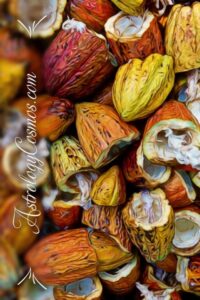Last Updated on January 13, 2023 by Cassandra Nostredame
Finding the best herbs is a common goal for new herbology students. While most herbs will help with a medical condition, you only have so much room in your garden. Whether you are starting out in herbology or are an experienced herbalist, the following herbs are some of the best options for your garden. If you cannot grow these herbs yourself, look for organically grown herbs. Pesticides can harm your health, so you want to find herbs that are grown in a safe, organic way.
If you are interested in learning more information about how to become an herbalist, then be certain to provide yourself with all the available information that we have to offer on the subject.
Which Herbs Are the Best?
The best herbs can also depend on where you are. The herbs that grow best in Florida probably won't do as well in Washington State. If you are interested in herbology, try finding herbs that are native to your area. You can forage for local herbs and grow non-native herbs in your garden.
1. Stinging Nettles
Stinging nettles are one of the best herbs, but they do not get the respect that they deserve. Most people view them as a nuisance and remove them from their garden. In reality, this plant is extremely nutritious. You can stir fry it, eat in in soups or steam it. The sharp, stinging aspect of the plant disappears if you cook it or dry it.
This herb is high in Vitamin C, A, potassium, calcium, iron and magnesium. The seeds and leaves can also be used medicinally in a tea as a kidney tonic. It can be used or arthritis and allergies. It grows back from the roots each year, so you never have to replant it if it is already in your garden or in the landscape.
If you want to make sure your garden grows amazingly, stinging nettles can help. They are known as dynamic accumulators, which means that they can mine important nutrients from the soil. Since these nutrients are concentrated in their leaves, you can make a fermented tea out of the plant and use the tea to water your garden.
2. Calendula
Also known as pot marigold, this is one of the best herbs for herbalists. It produces pretty, gold flowers that are actually edible. Since the herb is extremely useful for skin conditions, it is often used to make salves, ointments and creams. If you buy a diaper rash cream at the store, you will most likely find this listed as an ingredient.
Meanwhile, the flowers can be eaten in your salads, soups and other foods. As a salve or oil, calendula can help heal wounds, dry skin or burns. As a tea, it has anti-bacterial and anti-fungal properties. It can stimulate the menstrual cycle and the lymphatic system. When used as a digestive anti-inflammatory, it can help with peptic ulcers and GERD.
3. Passionflower
Passionflower is a wonderful herb for the garden. While it is native to the southeastern United States, this vine can also grow in other areas. The flowers and leaves are used to sedate the nerves, boost sleep quality and reduce pain. It is often used for headaches and menstrual cramps.
4. Spilanthes
You might not hear about poor Spilanthes all the time, but it is a one of the best herbs for a medicinal herb garden. Known as toothache plant, this herb is one of the best saliva promoters out there. It causes a numbing sensation in your mouth, which is why a lot of toothache remedies use it. This plant also works as an oral anodyne and has anti-microbial properties. You can chew on any of the above-ground parts of the plant or use it to form a tincture. Many people blend it with Echinacea to support the immune system during the flu or a cold.
This plant is an annual that likes full sun and needs water during try times. Luckily, it self-sows, so it is easy to keep your Spilanthes patch going. While it is known for being easy to grow, it also attracts slugs. If you want to have any of the herb leftover, you need to keep the slugs at bay.
5. Holy Basil
If you have a headache, this is one of the best herbs for it. Holy basil is great for treating colds, bronchitis, headaches, stress, sinusitis, coughs, anxiety and stress. Since it has an adaptogenic effect, it can help boost your energy, focus and mental clarity. You can use the fresh leaves in your salad or make an herbal tea. Many people also enjoy eating a pesto made of holy basil. Best of all, you can get multiple harvests by cutting your crop down to 8 inches and letting it regrow.
6. Motherwort
This is the herb to go to for stress and anxiety. If you are in pain, it can be used as a tea or tincture. It can help with muscle sprains, headaches, muscle aches and menstrual cramps. Since the taste is fairly bitter, you might want to stick to using it as a tincture instead of a tea. It also helps menopausal women ease irritability and hot flashes. Since it strengthens contractions, talk to your midwife or doctor before using it if you are pregnant.
7. Wild Bergamot
This is one of the best herbs for medicinal uses, but it is also a popular flower for bees, butterflies and hummingbirds. It is similar to bee balm, but is able to handle hot and dry conditions better. In traditional Native American culture, it was used for digestive problems and infections. It was used to create a sweat for breaking a fever and as an anti-inflammatory. Wild bergamot can also treat bloating and gas. You can use it in a tea or tincture, but remember that it has a pungent flavor. For a pesto with a punch, blend it with basil. If you use dried flowers and leaves with steam, inhaling it can help break up your congestion. It is a vigorous runner like mint, so you either need to plant it in a container or put it somewhere where it can spread forever.
8. Meadowsweet
Also known as queen of the meadow, this is one of the best herbs for heartburn and peptic ulcers. In Europe, it grows wild in the meadows. The flowers and leaves have a pleasant, wintergreen-like flavor that makes it great for teas. Used internally, it can treat heartburn, inflammation, fevers and peptic ulcers. Because of the anti-inflammatory properties, it can be used as a tonic for arthritis.
9. Southern Ginseng
This plant started in East Asia where it was known as Jiaogulan or sweet tea vine. It was traditionally used for vitality and longevity. You can use the leaves to make a medicinal tea for stress, high cholesterol, anxiety, high blood pressure and depression. It has similar compounds to American and Asian ginseng, and the taste is quite similar.
10. Echinacea
No list of the best herbs would be complete without Echinacea. Known as the purple coneflower, this plant has showy flowers that attract bees, butterflies and hummingbirds. It is easy to grow and is one of the best herbs for supporting the immune system. The seeds, roots and fresh flowers all have medicinal properties. Echinacea can be used as a tincture or tea. IT starts flowering after two years, and the roots can be harvested after two or three years.
11. St. John's Wort
This is one of the best herbs for depression, so talk to your doctor or naturopath about using it if you have mild to moderate depression. It produces yellow flowers and pretty, glossy leaves. These flowers and leaves are the active parts of the plant. It can be used to make pills, teas and liquid extracts.
12. Chamomile
No herb garden would be complete without this soothing plant. The flower heads of chamomile can be used to make a salve or infusion. It is often used for tension, stress and anxiety, which makes it a great tea to drink before bedtime. As a salve, it can help with skin irritations and inflammations. Chamomile is also known for helping with color and indigestion.
13. Basil
Basil is one of the best herbs for cooking (in my opinion), but it also happens to have medicinal benefits as well. This herb can help with a lack of appetite, scrapes, gas and cuts. You can harvest the leaves from the plant as you need them, and it will keep growing as long as you do not harvest too much. It does love warmth, so it is unlikely to grow well if the soil is below 50 degrees.
14. Thyme
Thyme is not just for cooking! It contains an active compound called thymol, which is an excellent antiseptic. Because of this, thyme is a top herb for congestion, gas, coughs and indigestion.
Thyme
15. Wild Pansy
Also known as Johnny Jump up, this herb has pretty flowers and strong anti-inflammatory properties. It can help treat skin blemishes and eczema. It also loosens phlegm when you have a respiratory infection. Long ago, this plant was also known as heartease, which remains my favorite name for it. Traditionally, it has been used for conditions like asthma, respiratory problems and skin diseases. Since it has expectorant properties, it is one of the best herbs for bronchitis.
16. Feverfew
This lovely herb is often used in teas. You can chew on the leaves to relieve a headache or migraine. The flowers and leaves can also be used to make an herbal tea. This plant can help with skin conditions and arthritis.
17. Lemon Balm
Lemon balm is one of the best herbs for anxiety and mood-boosting. It is a relative to mint and can grow just as crazy as mint plants do. Stick to a container if you don't want lemon balm to take over. This is one of the best herbs for insomnia, anxiety and panic attacks. As a salve or cream, it can help treat insect bites and wounds. Certain compounds in lemon balm allow it to treat herpes and cold sores. Keep in mind that it can inhibit the thyroid a bit, so this is not a good option for anyone who suffers from hypothyroid
18. Lavender
Whether you want a aromatic garden or medicinal plants, lavender is one of the best herbs. The scent of lavender has been show to relax and calm the mind in research studies. When you apply it to bruises and cuts, it works as an antiseptic. Lavender is also able to ease pain, and it makes amazing scents for candles or lotions.
19. Peppermint
Peppermint is one of the best herbs for digestive relief. It can reduce gas and support your digestive system. As a tea, it can help sooth a headache. This plant has a strong tendency to take over, so a container is a good idea unless you want it to spread across a wide area.
20. Sage
The genus for sage, Salvia, means to heal, which makes sense this medicinal herb. This is one of the best herbs for digestive issues as well as throat and mouth inflammations. It can help reduce saliva and sweat production. It is also used to boost cognition and prevent Alzheimer's disease.
These are some of the best herbs for a medicinal herb garden or apothecary kit, but there are many, many more herbs that have healing benefits. If you want to learn more about herbology, visit the Herbal Academy. The Herbal Academy offers courses on herbalism and wildcrafting. You can also find a wealth of additional resources within their Herbarium.






Leave a Reply
You must be logged in to post a comment.